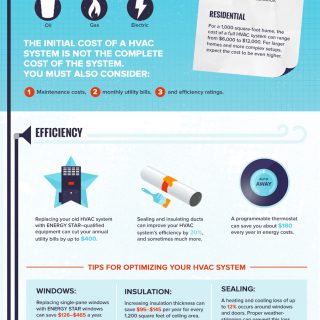Discovering The Ecological Advantages Of Warmth Pumps - A Lasting Heating Solution
Discovering The Ecological Advantages Of Warmth Pumps - A Lasting Heating Solution
Blog Article
Post Written By-Forsyth Otto
In an age where sustainability and energy efficiency are extremely important, lots of organizations look for environment-friendly heating solutions. One such solution is the heatpump.
A heat pump extracts the warm in its surroundings and pumps it into your home, leading to one of the most efficient eco-friendly central heating unit around. visit the up coming website generates no greenhouse gas emissions, making it an extremely sustainable innovation.
Power Effectiveness
Heat pumps are really energy efficient and require little maintenance. They make use of less power than various other heating systems and are without a doubt the most environmentally friendly. They work well with roof solar and can frequently pay for themselves in utility cost savings alone.
They can additionally provide cooling, which is fantastic for garage workshops, attic hangouts and incentive rooms, and home enhancements without prolonging the existing ductwork. They can also be made use of for retrofits in existing homes with hydronic (water-based) circulation systems such as reduced temperature level radiators or radiant floors.
Look for versions with SEER and HSPF scores that meet or surpass copyright's minimum standards, in addition to the standards in your region. Higher rankings mean greater efficiency, which conserves you money in the long run and decreases your carbon impact. learn this here now could also receive rebates and incentives! The most effective units are those with a ground warm exchanger for added efficiency. These devices can absorb thermal energy from the ground throughout the winter months and remove it in the summer season.
Minimized Greenhouse Gas Emissions
Heat pumps work on electrical power and essentially transfer heat from the air, also when it's cool exterior. They are able to extract the cost-free heat entraped in air bits and relocate them inside, reducing moisture while doing so.
Contrasted to gas furnaces, contemporary heat pumps utilize less than one kilowatt of power per kilowatt of home heating power they produce. This makes them one of the most energy effective heating alternative offered with a POLICE (Coefficient of Performance) of 4 or even more. By reducing the need for fossil fuels, heatpump help in reducing greenhouse gas exhausts and cut various other major air contaminants.
Building decarbonization is an international imperative, and the a/c sector is a key vehicle driver of that procedure. Whether it's investor making net absolutely no dedications, policy manufacturers establishing discharges limitations, or lessees demanding greener rooms, electrical heat pumps are being acknowledged as a necessary solution. They are an affordable way to lower carbon exhausts by getting rid of the need for fossil fuels in buildings.
Adaptability
Heatpump can be utilized in lots of types of homes and buildings-- with or without air ducts. They collaborate with hot-water radiators, air-conditioning and programmable thermostats. They can replace heating systems or be set up in brand-new houses. They can run on photovoltaic panels, geothermal systems or even area heating resources like wastewater.
They're terrific at supplying more warmth per power unit. For example, an air-source heat pump creates as much as three or more home heating devices from each power system it consumes.
Obtaining the most from your heatpump will depend on your climate area and high quality of insulation. Seek models with power celebrity ratings and compare their SEER or HSPF specifications. In warmer climates, focus on SEER; in chillier regions, consider a system with a greater HSPF score. On top of that, invest in air sealing and insulation to minimize the load on your heat pump. That will certainly enhance energy efficiency and assist you reach your Web No goals much faster.
Biomass Boilers
Biomass central heating boilers use timber pellets, chips or logs to produce warmth and warm water. They are a great option for off-grid homes or those that intend to leave the gas grid.
As a standalone heating system, biomass can offer sufficient energy to maintain your home cozy all year round without the regular heat drop off of various other renewable technologies. They can also be utilized in conjunction with photovoltaic panels to maximise savings and gain from RHI settlements.
A disadvantage of these systems is the upfront cost and regular fuel deliveries. Often, pellets will require to be blown into a fuel store using a vacuum system or they can be by hand fed right into the boiler with a receptacle. Logs are normally self-sourced from nearby forest or purchased wholesale. Along with this, they need hand-operated loading and might require cleansing often.